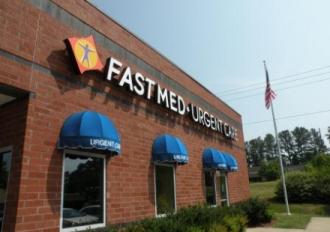Two bacteria walk into a bar. The bartender says, “We don’t serve bacteria here.” So the bacteria say, “But we work here. We’re staph.”
Okay, that may not be the best joke you’ve ever heard.The point is, if staph bacteria ever walked into a bar we were at, we’d hope our bartender would kick them out.
Infections are No Joke
 Staph bacteria are highly contagious and can spread easily from person to person. This is partly due to the fact that they are very resistant and can live on inanimate objects for long periods of time. For example, if someone with staph bacteria touches a towel, the bacteria can survive on that towel long enough to transfer to the next person who touches it.
Staph bacteria are highly contagious and can spread easily from person to person. This is partly due to the fact that they are very resistant and can live on inanimate objects for long periods of time. For example, if someone with staph bacteria touches a towel, the bacteria can survive on that towel long enough to transfer to the next person who touches it.
It is possible for anyone to get a staph infection. Still, people with underlying health conditions,* such as diabetes or HIV/AIDS, are more susceptible. You can lower your risk of developing a staph infection by*:
- Washing your hands.
- Keeping wounds covered.
- Avoiding sharing personal items.
- Washing clothing and bedding in hot water.
- Reducing tampon risks.
When to Visit FastMed
Many people carry staph in their noses, mouths, or genitals, and never develop a staph infection. Staph bacteria can live on the skin without causing any problems. However, when staph bacteria gets into an open cut or wound, a staph infection can occur. Skin infections are the most common type of staph infection, but it comes in many forms, including:
- Food poisoning
- Pneumonia
- Toxic Shock Syndrome*
- Septic arthritis*
- Bacteremia*
Treatment depends on the type of staph infection you have, but usually involves antibiotics. Visit your local FastMed if you start to notice areas of red, irritated, or painful skin, pus-filled blisters, and/or fever. Our walk-in clinics are open 365 days a year, and we provide treatment for a variety of skin rashes and infections.